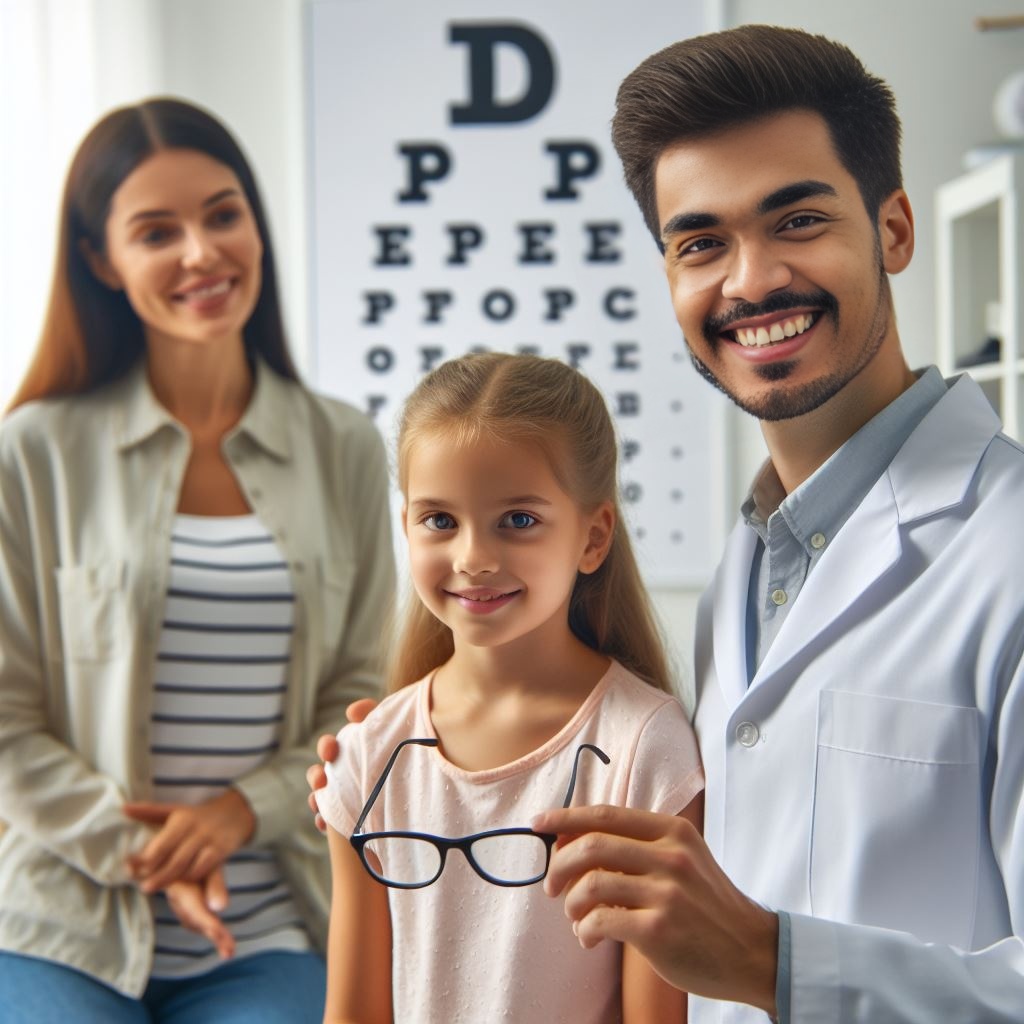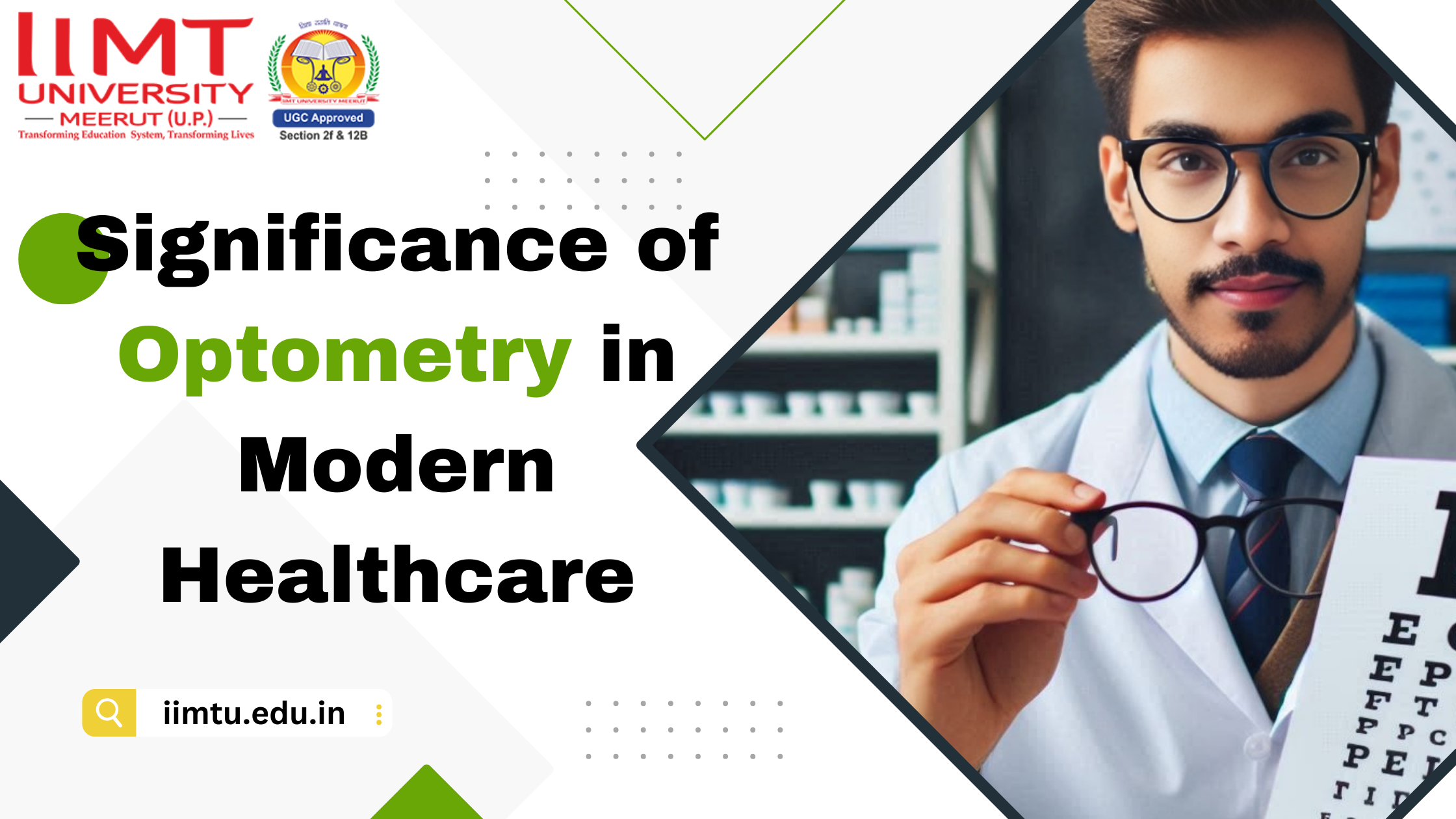Significance of Optometry in Modern Healthcare
In the realm of healthcare, optometry stands as a cornerstone, ensuring not just clear vision but also overall ocular health. From diagnosing vision problems to prescribing corrective lenses. Also, detecting systemic diseases through ocular manifestations, optometrists play a pivotal role in safeguarding our sight.
Understanding the Role of Optometry in Healthcare
 Optometry isn’t just about fitting eyeglasses or conducting routine eye exams; it encompasses a wide array of specialized services aimed at maintaining optimal eye health. Through comprehensive eye examinations, optometrists assess visual acuity and evaluate the health of the eye’s internal structures. These examinations often detect early signs of eye diseases to prevent vision loss.
Optometry isn’t just about fitting eyeglasses or conducting routine eye exams; it encompasses a wide array of specialized services aimed at maintaining optimal eye health. Through comprehensive eye examinations, optometrists assess visual acuity and evaluate the health of the eye’s internal structures. These examinations often detect early signs of eye diseases to prevent vision loss.
The Evolution of Optometric Practice
Over the years, optometric practice has evolved significantly. From the advent of digital retinal imaging and optical coherence tomography (OCT) to the integration of telemedicine for remote consultations, modern optometry leverages cutting-edge tools and techniques to deliver superior patient care.
Importance of Regular Eye Examinations
Regular eye examinations serve as the cornerstone of preventive eye care, allowing optometrists to detect and address vision problems and ocular diseases in their nascent stages. Contrary to popular belief, eye exams aren’t solely for individuals experiencing vision difficulties. Even those with seemingly perfect vision can benefit from periodic screenings to ensure early detection of any underlying issues.
Addressing Vision Changes
As we age, changes in vision are inevitable. Presbyopia, cataracts, and age-related macular degeneration are common ocular conditions that often manifest with advancing age. Through regular eye exams, optometrists can monitor these changes and prescribe appropriate interventions to maintain visual clarity and quality of life.
Early Detection of Systemic Diseases
Beyond vision correction, eye examinations can uncover early signs of systemic diseases that may otherwise go unnoticed. Conditions such as hypertension, diabetes, and multiple sclerosis can exhibit ocular manifestations, making the eyes a window to one’s overall health. Optometrists facilitate timely referral to other healthcare providers, enabling comprehensive disease management.
Bridging Gaps in Eye Care Accessibility
Despite the critical role of optometry in preserving vision and preventing eye diseases, accessibility to eye care remains a challenge for many individuals, particularly in underserved communities. Limited access to optometric services can result in undiagnosed vision problems and untreated ocular conditions, leading to significant health disparities.
Outreach Programs and Community Engagement
To address these disparities, optometrists and healthcare organizations are increasingly engaging in community outreach programs aimed at providing essential eye care services to underserved populations. These initiatives involve setting up mobile eye clinics, offering free eye screenings, and collaborating with local organizations to raise awareness about the importance of eye health.
Telemedicine and Remote Consultations
In addition to traditional in-person consultations, the adoption of telemedicine has emerged as a game-changer in expanding access to optometric care, especially in remote or rural areas. Patients can also connect with optometrists virtually, facilitating timely assessment and management of their ocular health needs without the constraints of physical distance.
Empowering Patients Through Education
Empowering patients with knowledge about proper eye care practices is essential for maintaining lifelong ocular health. Optometrists educate patients about the importance of regular eye exams, proper eyewear hygiene, and lifestyle modifications to protect their vision.
Promoting Eye Health Awareness
Through educational seminars, informational materials, and social media campaigns, optometrists raise awareness about common eye conditions, preventive measures, and the significance of early intervention. By fostering a culture of proactive eye care, these initiatives empower individuals to take control of their ocular health and seek timely professional assistance when needed.
To know more – Visit our Website
For admission related queries – Click here or call us @ 9997089170
Author:- Md Javed Ansari

